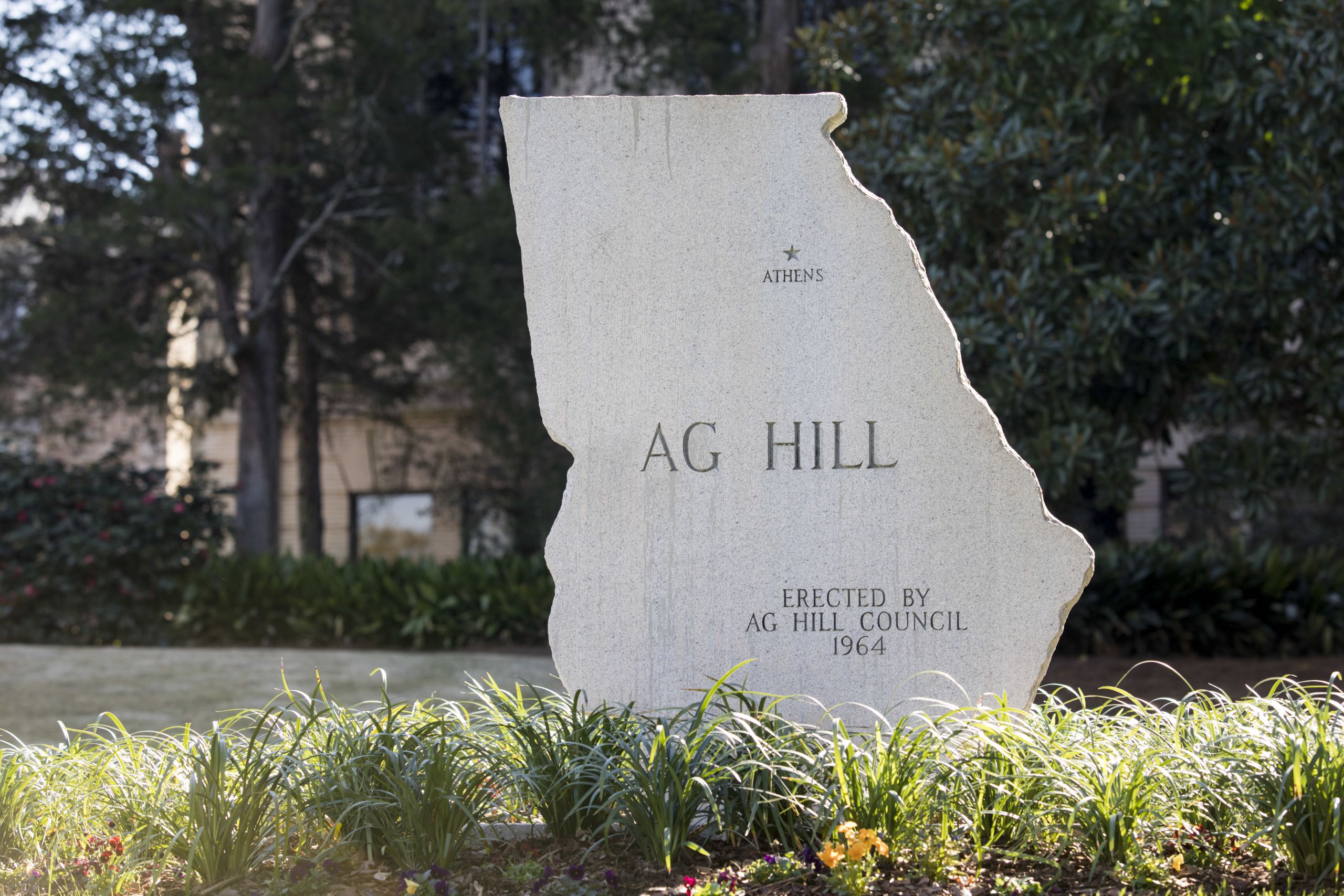Transformative Learning
CAES faculty innovate in virtual instruction during COVID-19 crisis
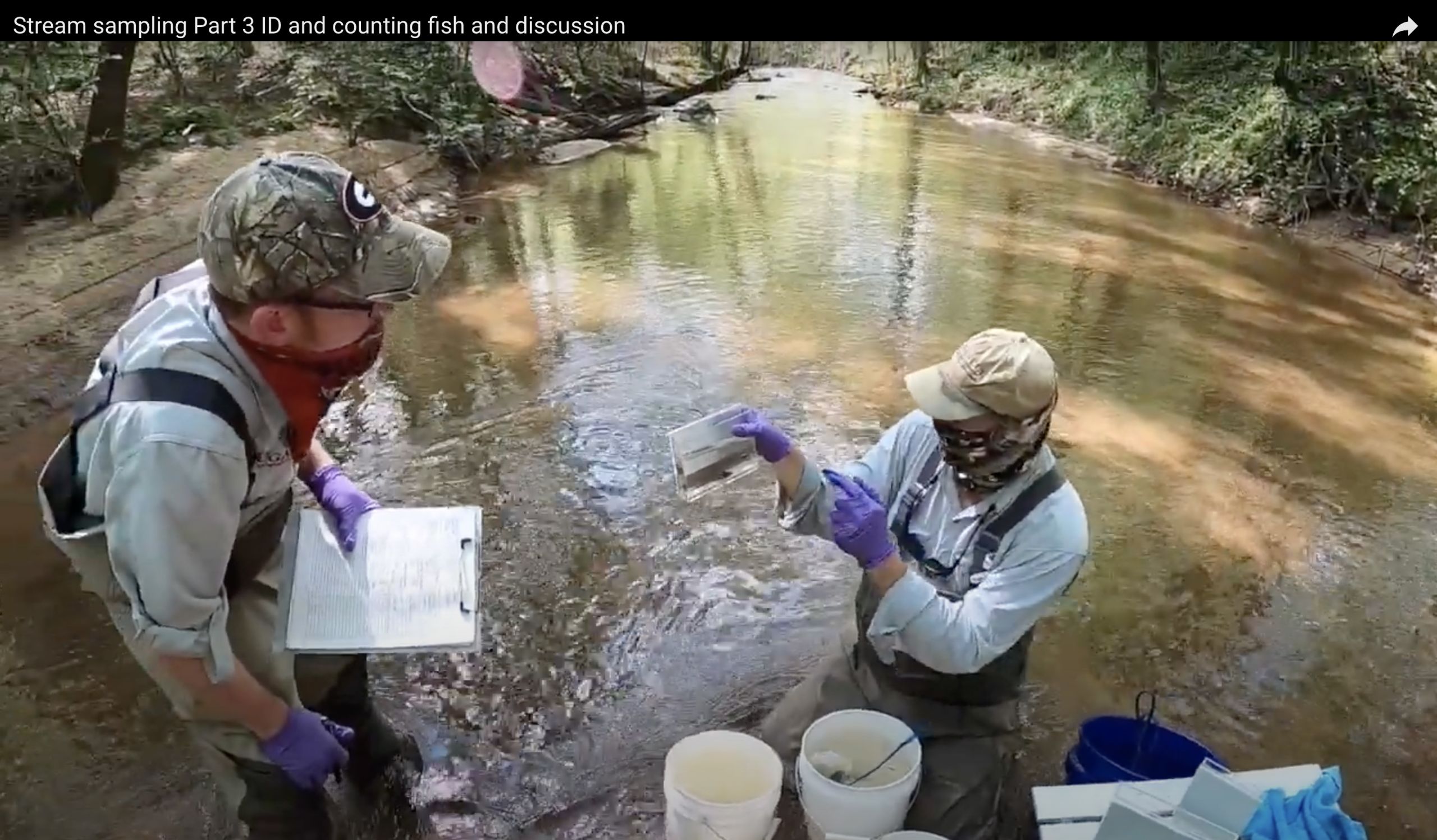
Professor Nick Fuhrman, Department of Agricultural Leadership, Education and Communication
“Natural Resource Management for Teachers”
When University of Georgia professor Nick Fuhrman takes his GoPro into the woods to film short videos for the “Natural Resource Management for Teachers” lab he teaches, he knows it’s not quite like being there for his students.
That doesn’t mean he doesn’t give it his best shot, though, wading through streams for fish sampling, plunging the waterproof camera underwater for close-ups of the fish, and pointing out the features of different species with co-teachers James Shelton and Kris Irwin from the Warnell School of Forestry and Natural Resources. “The students have been very flexible and understanding and our faculty learning community has been great about discussing ways of being inclusive with online teaching,” said Fuhrman.
“The one thing I always come back to is, you can use all the tech in the world, but you can’t forget what great teaching looks like. The bottom line is to make students understand that we care about them and are genuinely interested in their success.”
Fuhrman, a professor in the College of Agricultural and Environmental Sciences (CAES) Department of Agricultural Leadership, Education and Communication, was recently named a Josiah Meigs Distinguished Teaching Professor, the university’s highest recognition for excellence in instruction.
When institutions in the University System of Georgia were mandated to move to virtual learning during the COVID-19 crisis, Fuhrman and other CAES faculty, like faculty across the country, had to quickly adapt to teaching everything online, from introductory lecture classes to complex labs, many of them with intensive hands-on components.
While he was already accustomed to teaching some classes online, Fuhrman said adjusting lab classes to a virtual format was more challenging. Fuhrman, however, has engaged in a form of virtual teaching for seven years through his television series, Ranger Nick, which airs on Georgia Public Broadcasting and the RFD-TV network, reaching more than 60 million homes. He was also selected to give a TED Talk about effective teaching that has been viewed more than 200,000 times on YouTube.
“I’ve realized you have to think about things in shorter bits of information — a minute and a half or two minutes — then take on something else,” he said. “Teaching online is like thinking in sound bites. You have to mentally switch gears every two or three minutes or their minds are wandering.”
Rather than taping lectures to post online and having students respond through discussion boards — known as asynchronous teaching — Fuhrman prefers to have his students log in for a live class during regular class times, called synchronous teaching.
“One thing the students enjoy about this is that it is fluid. Things just happen, and even if they don’t happen like you’d envisioned, it’s a teachable moment. Students ask great questions on chat and we can capitalize on that,” he said. “I like to kind of relax a little and have some fun with it, to put some personality in it. I use the GoPro or spin the computer’s camera around to show them I’m doing a demo on my kitchen table. It’s not NBC-quality video, but I think it builds a sense of rapport when students and instructors see into each other’s lives a little bit.”
Because he is teaching future teachers how to teach, Fuhrman thinks it is important to model flexibility and creativity when teaching.
“I always tell them that the bottom line between presenting and teaching is making what they do engaging. So many folks present rather than teach — they’ve got a PowerPoint and there’s not a lot of engagement, not a lot of personality,” he said. “But teaching is all about that relationship. That is what is so cool about this, you can have some fun with it.”

UGA Professor Nick Furhman and Associate Professor James Shelton perform stream sampling during a recorded field lab.
UGA Professor Nick Furhman and Associate Professor James Shelton perform stream sampling during a recorded field lab.
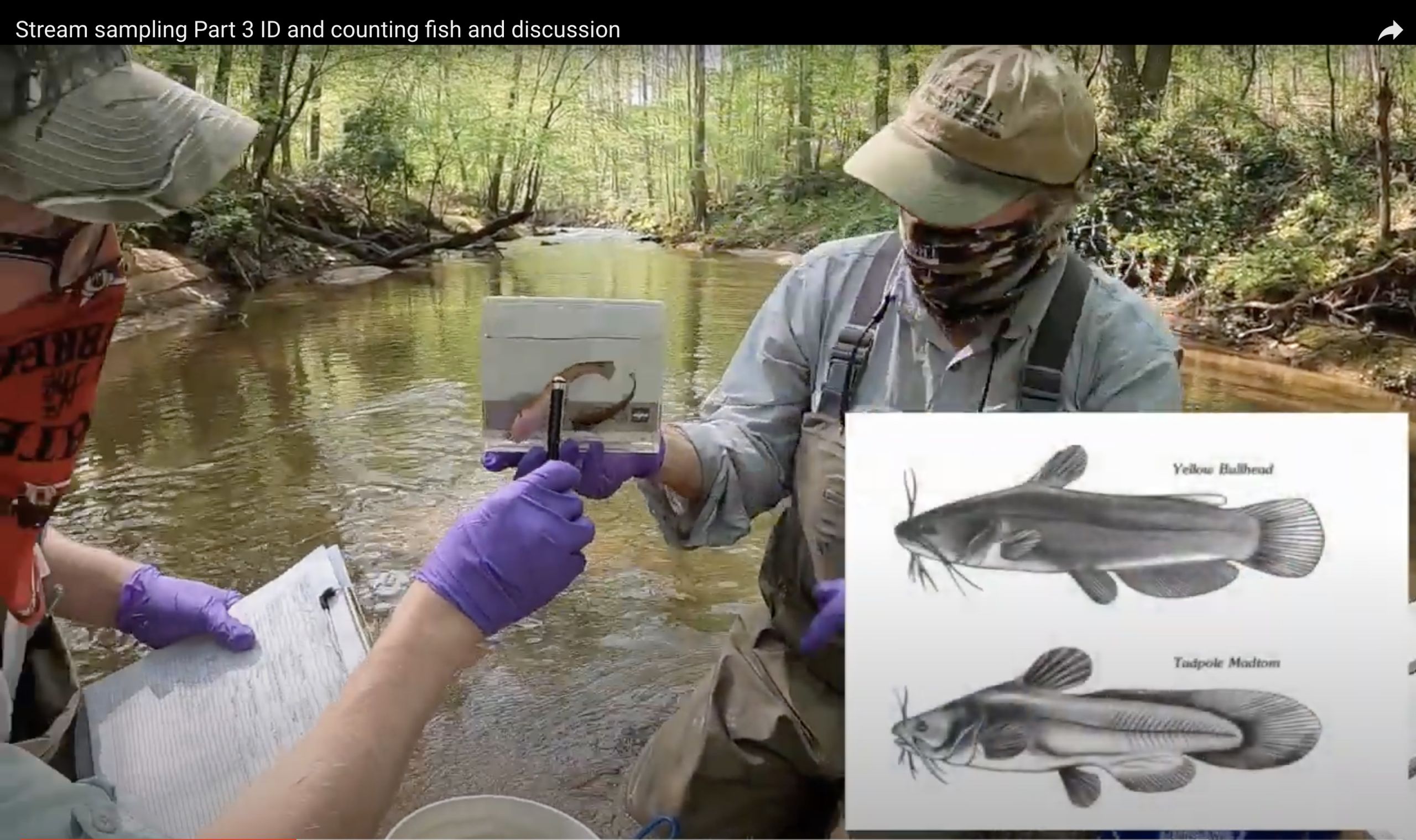
UGA Professor Nick Furhman and Associate Professor James Shelton perform stream sampling during a recorded field lab.
UGA Professor Nick Furhman and Associate Professor James Shelton perform stream sampling during a recorded field lab.
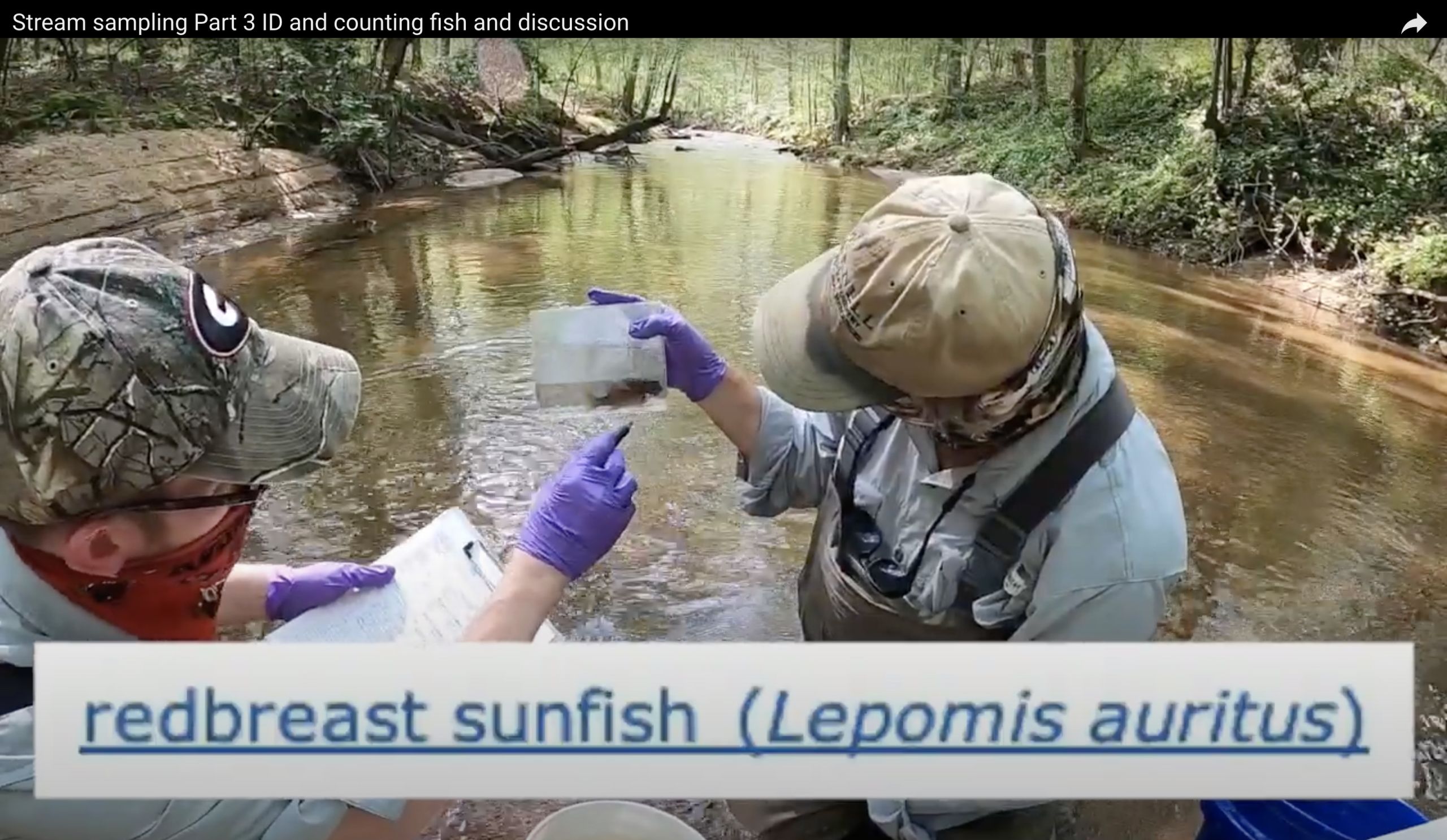
UGA Professor Nick Furhman and Associate Professor James Shelton perform stream sampling during a recorded field lab.
UGA Professor Nick Furhman and Associate Professor James Shelton perform stream sampling during a recorded field lab.
Assistant Professor Jillian Bohlen, Department of Animal and Dairy Science
“Applied Reproductive Management in Cattle and Swine” and “Dairy Cattle Evaluation and Selection”
Because of the nature of the subjects Jillian Bohlen teaches in the Department of Animal and Dairy Science, transitioning her spring “Applied Reproductive Management in Cattle and Swine” and “Dairy Cattle Evaluation and Selection” classes online took a healthy dose of inventiveness.
Normally, the students in her reproductive management class would transfer embryos from donor cows to recipient cows, grading the embryos for age and stage of development. In preparation for that hands-on process, Bohlen would usually have an animal reproductive tract in a lab for students to visualize and practice the procedure. Because that wasn’t possible, she created a mock-up uterus and duct taped it to a white board to demonstrate the procedure via video.
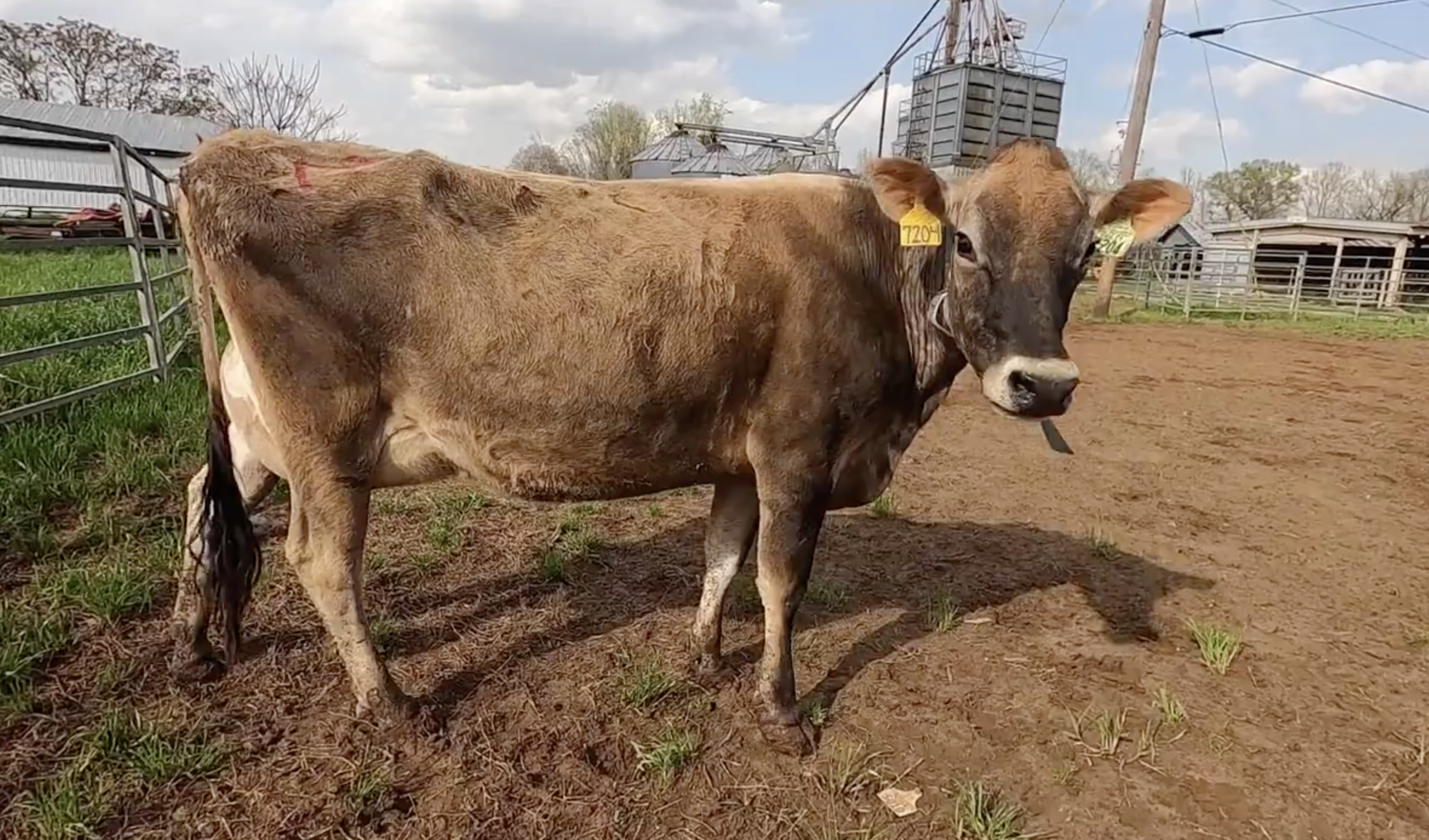
Bohlen took her GoPro out to videotape dairy cows so her students could virtually review them for her "Dairy Cattle Evaluation and Selection” class.
Bohlen took her GoPro out to videotape dairy cows so her students could virtually review them for her "Dairy Cattle Evaluation and Selection” class.
“I set up the entire process for them in the video and narrated what I was doing. I bought a GoPro with a head mount because I wanted them to walk the barn with me like they would in a live class. I did pregnancy checks to see how many cows were pregnant each week and we performed ultrasounds on the cows, videotaping the ultrasounds so students could study them,” Bohlen said. “I wanted them to see those things. Even if they couldn’t be right there with me, I wanted them to feel they were a part of the process on some level.”
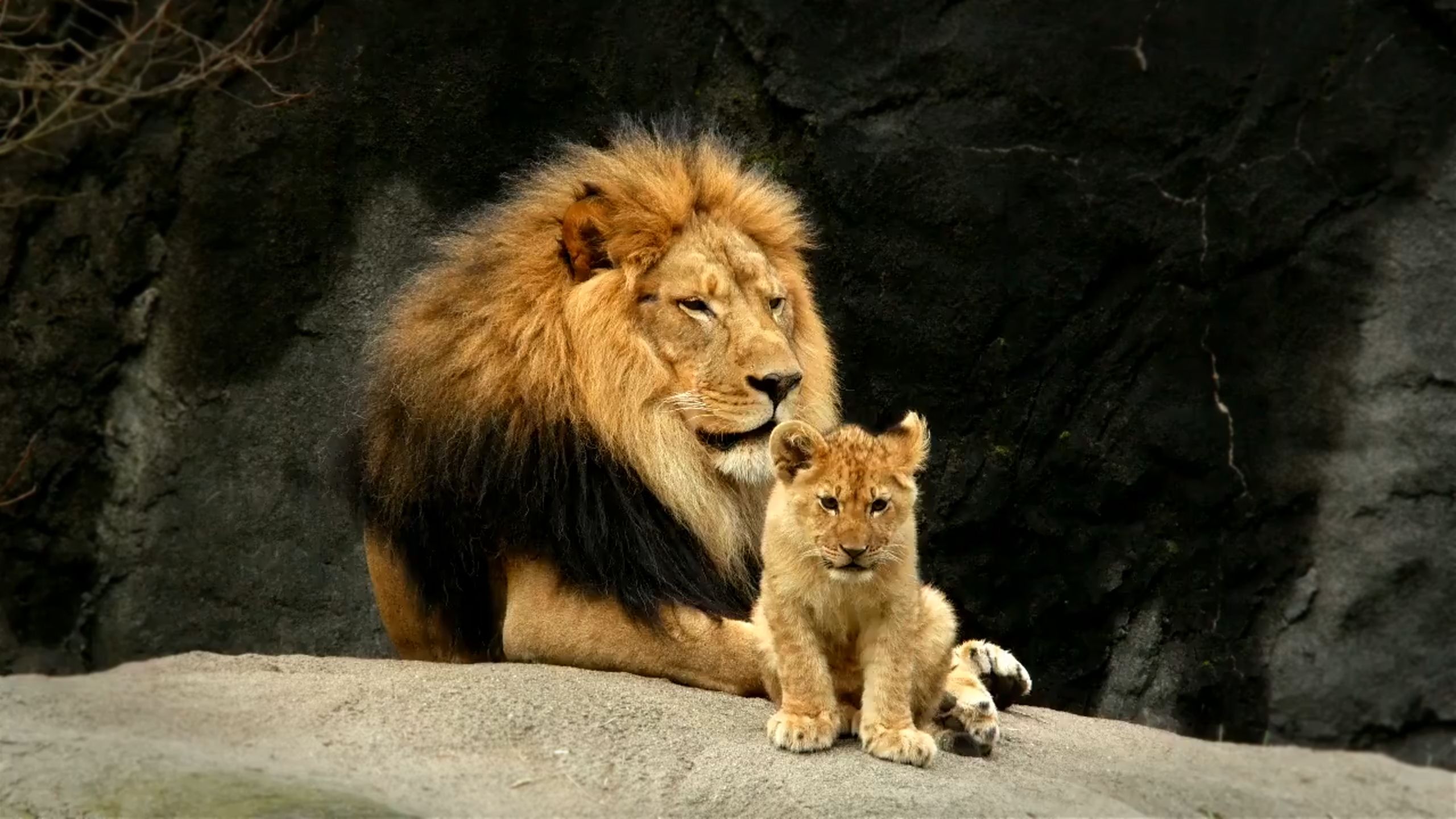
Associate Professor
David Berle, Department of Horticulture
"Sustainable Community Food Production."
A self-described “reluctant user of technology,” associate professor David Berle counts himself fortunate that he has been teaching some of his traditional lecture courses online for several years, building up a cache of templates and videos in the eLearning Commons — UGA’s online learning management system — that he can use every semester.
“Because we do many hands-on activities, I had already made a lot of videos of talks and lectures that students could watch before we would go out to the farm,” he added. “It was helpful to have done that legwork, so it didn’t take much time to add some more videos. Now I am looking into doing some podcasts instead of another Zoom class or recording. With a podcast, a student can listen wherever they are, whether they are driving or walking or whatever. I’m getting ready to do a whole class this summer with podcasts.”
In his “Sustainable Community Food Production” course, the horticulture professor asked his students what they wanted to grow in the 4-foot by 8-foot garden boxes they would have been in charge of at the UGArden, then planted them as the students requested. He photographed the boxes after planting and then weekly so students could watch the progress.
“We are in the process now of setting up a video camera out here just in case we do it again, that way they can watch it grow,” Berle said at the end of the spring semester.
While that kind of one-on-one interaction is possible with smaller classes, Berle says he’s gotten creative with larger classes like “Introduction to Horticulture,” which he’s taught online for four years. While he wouldn’t give a quiz every day in a face-to-face class, he’s created quick, 10-question quizzes for each section of the online class to gauge how the class has been keeping up with the required reading.
“It’s not an ideal replacement for talking to them in a class, where you can tell when you say things they don’t understand or have never heard before, but I’ve found it does encourage students to read the articles more thoroughly,” he said.
Some of the strategies he’s used for his online classes will shape the way Berle says he will approach classroom teaching in the future.
“It’s hard for students to sit in a room for 50 minutes and listen to a lecture. I feel like I lose them after about 30 minutes,” he said. “When you take the time to utilize the eLearning Commons you will realize you can use these already prepared lectures. Maybe you won’t be teaching online, but you can do fewer lectures in class and use that face-to-face time for more student presentations and a more interactive class.”
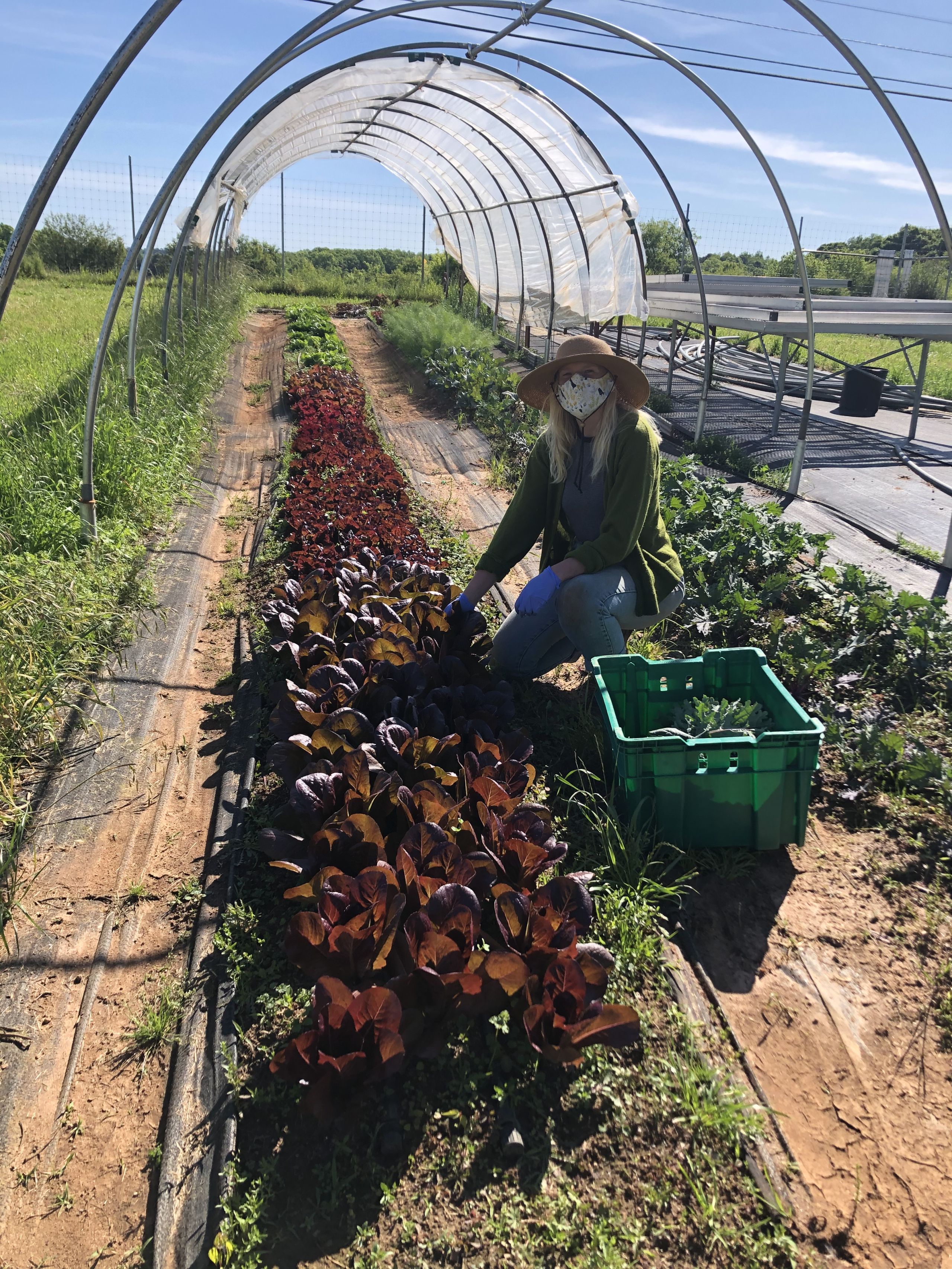
UGArden staff helped plant and tend plots for students in Berle's "Sustainable Community Food Production” course.
UGArden staff helped plant and tend plots for students in Berle's "Sustainable Community Food Production” course.
Associate Professor Robert Dove,
Department of Animal and Dairy Science
“Introductory Animal and Dairy Science” and “Practicum in Animal and Dairy Science”
While he can see positive outcomes from virtual learning — including bringing both students and instructors up to speed on all of the technology available for online learning — some things just can’t be learned online, according to Robert Dove, associate professor and undergraduate coordinator for the Department of Animal and Dairy Science.
“I think the university as a whole is going to be influenced by this and we will end up going to more online or virtual education. We are proving that both faculty and students can successfully do online courses even in cases where we weren’t as confident could get these things done. It will have an impact on education in general for years to come,” said Dove.
However, for foundational classes such as “Introductory Animal and Dairy Science” and the accompanying “Practicum in Animal and Dairy Science,” there’s no substitute for hands-on learning.
“We have a four-hour lab at the farm each week to teach how to shear sheep or give injections or palpate a cow. You can’t do any of those things online — it is purely a hands-on class. I am struggling to understand how a student will have the skills they usually learn in a foundation class that they must have for all upper-level production classes,” Dove said. “By the time you take those classes, you already need to know how to set and trim a sheep’s feet. Part of that process is taking hold of the sheep and turning it over so you have access to their feet … there’s an art to learning how to shift a sheep’s body weight so you can turn them over. Until you go out and actually give a cow an injection, you can’t know how to do it properly unless you feel the skin roll under your fingers and feel the space you are creating.”
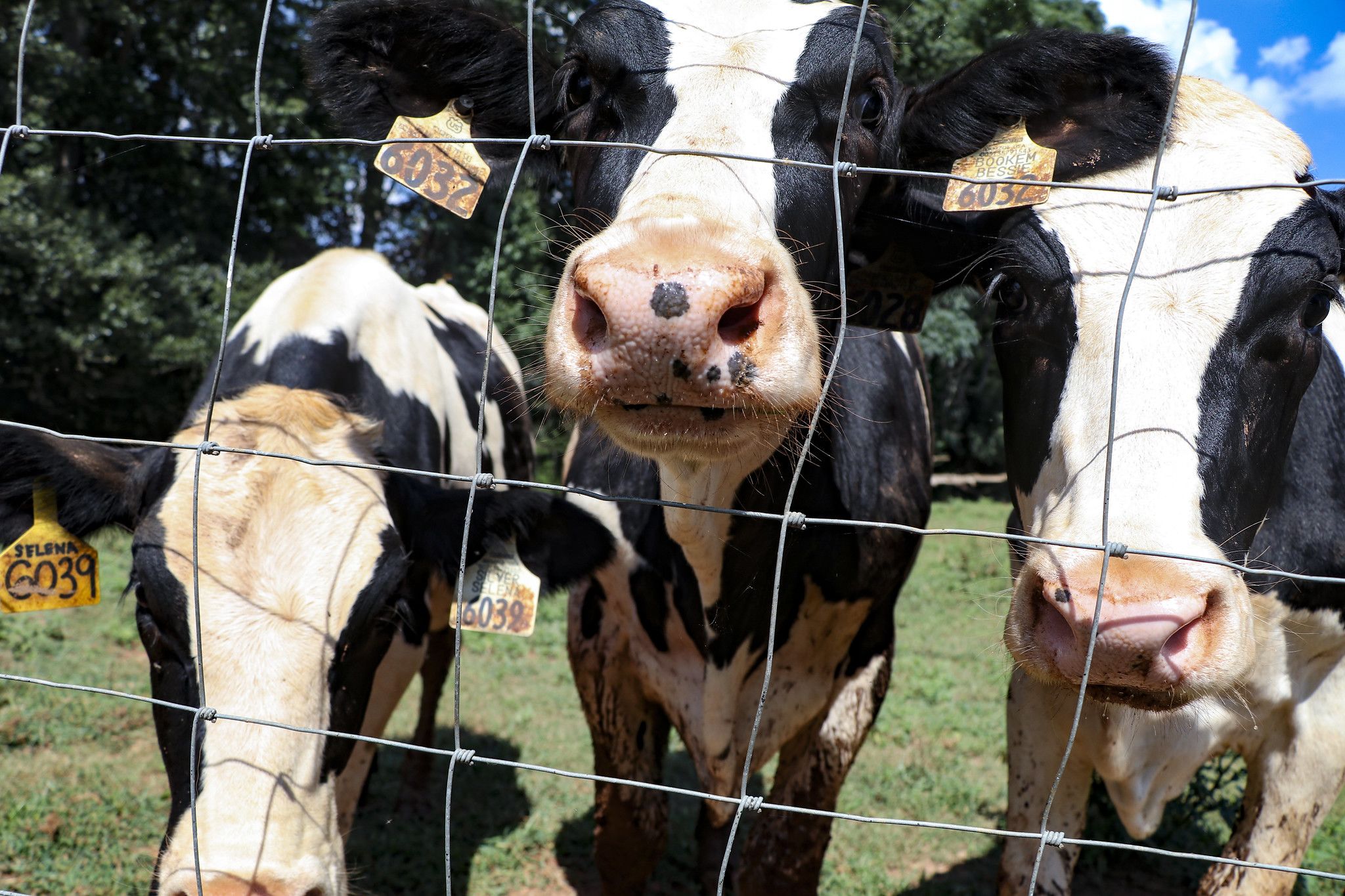
Hands-on demonstrations in Dove's “Practicum in Animal and Dairy Science" class include giving inoculations to cattle.
Hands-on demonstrations in Dove's “Practicum in Animal and Dairy Science" class include giving inoculations to cattle.
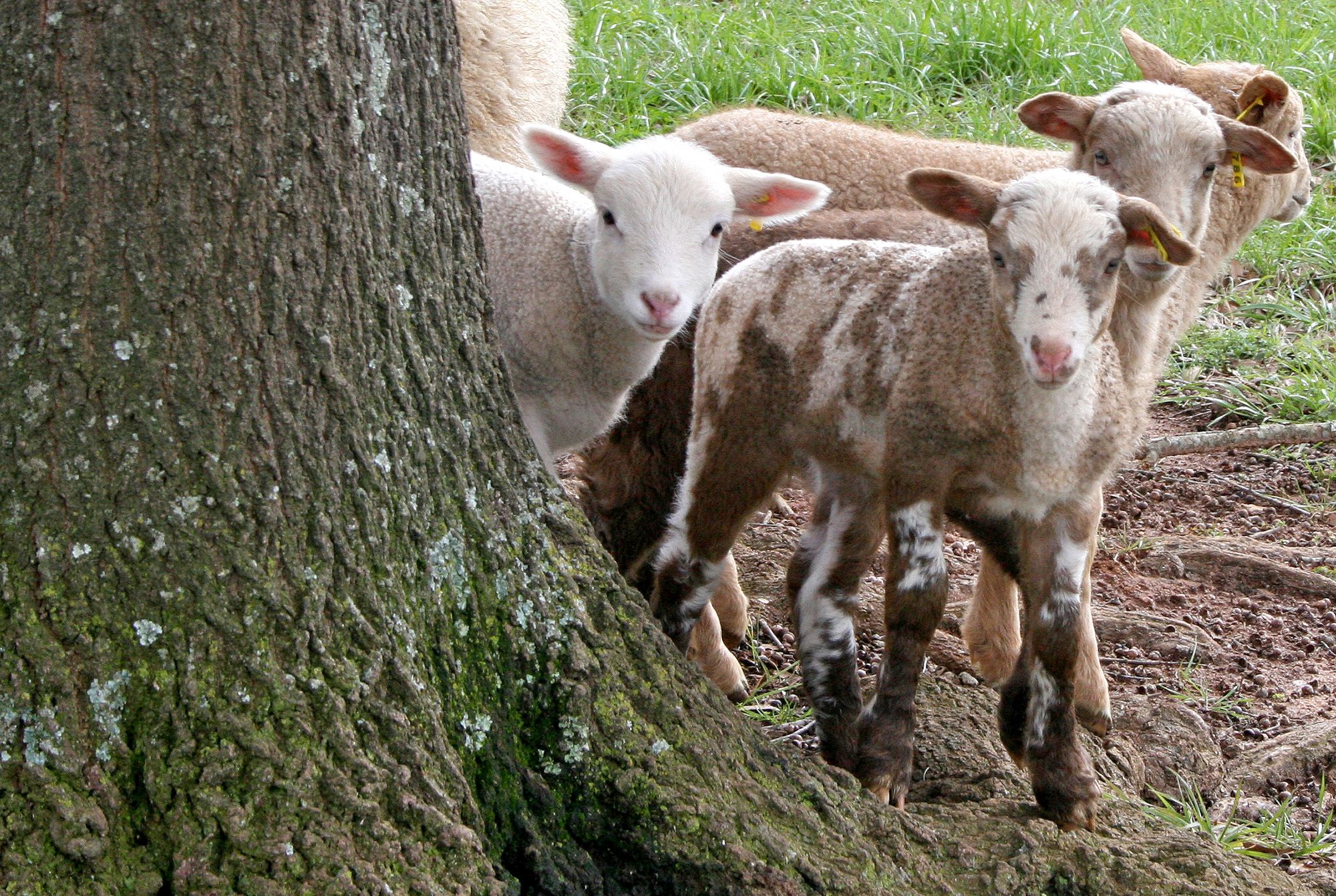
Proper handling of sheep is part of the hands-on learning in Dove's “Practicum in Animal and Dairy Science" class.
Proper handling of sheep is part of the hands-on learning in Dove's “Practicum in Animal and Dairy Science" class.
Assistant Professor Paul Severns, Department of Plant Pathology
"Plant Epidemiology"
Teaching plant disease epidemiology has offered a unique opportunity for Paul Severns to connect the curriculum of the class to the COVID-19 pandemic.
An assistant professor of plant epidemiology in the Department of Plant Pathology, Severns showed his students how many of the same techniques used for modeling plant diseases can be applied to many of the COVID-19 models used during the pandemic.
“While the diseases are in plants, the ideas and basic underpinnings are the same. It was a timely thing to learn in class and we talked about COVID-19 and the parallels between plant diseases and COVID-19. It was a way to apply what they are learning to what was going on in the world. It was a natural way to engage the students,” he said. “I also tried to focus the work and keep it reasonable given the circumstances. Just because they were taking my class, I doubt it is the only class they were taking. It was also a stressful time in general, and more work doesn’t necessarily mean better learning.”
While online learning requires patience from both the instructor and the students, Severns discovered that the virtual classroom was a better forum for some students.
“The same students who are chatty in class were chatty online, but I was hearing from other students as well. In class, to get some people to talk, initially you have to call on them to get students comfortable with speaking in class, but for whatever reason, those students were more willing to participate in online,” he said.
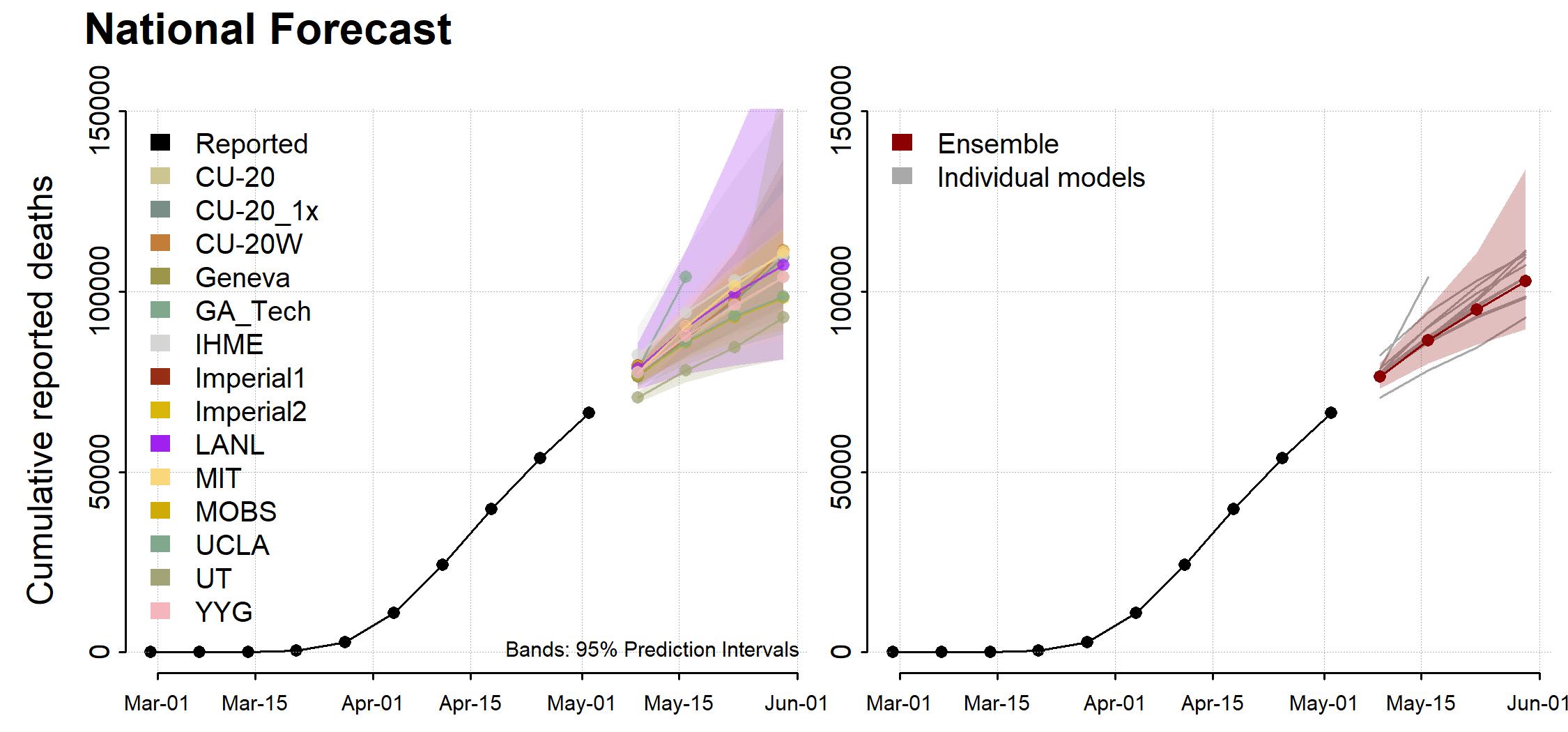
This model released by the Centers for Disease Control and Prevention aggregates information on the spread of COVID-19 from a variety of research sources.
This model released by the Centers for Disease Control and Prevention aggregates information on the spread of COVID-19 from a variety of research sources.
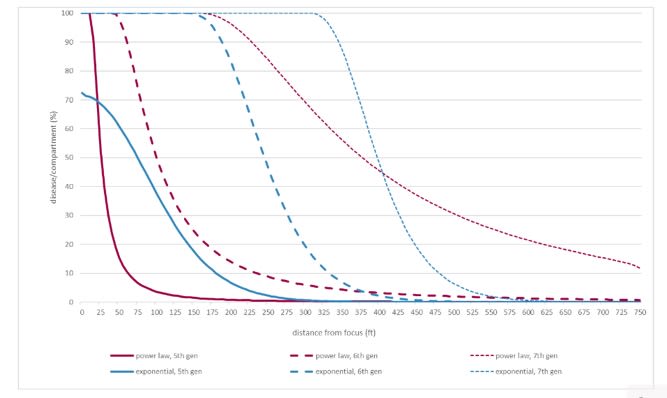
This chart by Emily Sykes, a doctoral student in plant pathology, shows constant versus increasing velocity of disease spread through a host population over time depending on the disease dispersal kernel model.
This chart by Emily Sykes, a doctoral student in plant pathology, shows constant versus increasing velocity of disease spread through a host population over time depending on the disease dispersal kernel model.
Professor Melissa Mitchum, Department of Plant Pathology
"Introduction to Plant Pathology"
Professor Melissa Mitchum was tasked with creating a virtual curriculum for the lab component of the “Introduction to Plant Pathology” class she co-taught this spring. Adding to the challenge was that she had not met her 47 undergraduate students, who were taught before spring break by another professor and were scheduled to meet her for the first time the week in-person classes were canceled.
“I had all of the plants ready at the Milledge Greenhouse, so I videotaped short clips of myself demonstrating pathogen inoculation of plants, tracking symptom development, and showing them what they would have been doing to make disease diagnoses,” she said. While teaching about the bacterial, viral and nematode diseases of plants, Mitchum talked about how a disarmed plant-pathogenic bacterium is helping to develop a SARS-CoV-2 vaccine, discussed similarities of plant virus genomes and the SARS-CoV-2 genome, compared plant-to-plant transmission of viral diseases to human-to-human viral transmission, and explained how rapid test kits work to detect plant and human viral infections in an effort to draw parallels to the current pandemic.
Mitchum also used specimen slides of the diseases students normally would have viewed under a microscope so they could draw the images as they would during the lab.
Although she initially wanted to do synchronous classes, Mitchum went with recorded videos for the lectures and lab class after a first introductory Zoom session to get to know everyone, an approach that allowed her students more flexibility on when they viewed classes and performed assignments recognizing the potential for internet connectivity issues and increased work demands.
“My concern as an instructor was to keep the students engaged. Next time I might use a tablet instead of a laptop so I can write on the screen and make the recorded lectures more interactive. There’s nothing better than being in the lab, you have to do it yourself at some point, but there are ways to make it work.”
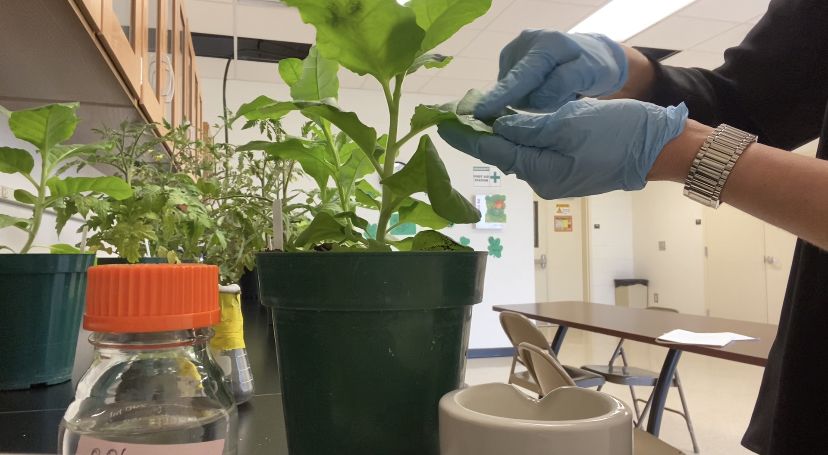
Mitchum made videos demonstrating plant inoculation for students in her “Introduction to Plant Pathology" lab.
Mitchum made videos demonstrating plant inoculation for students in her “Introduction to Plant Pathology" lab.
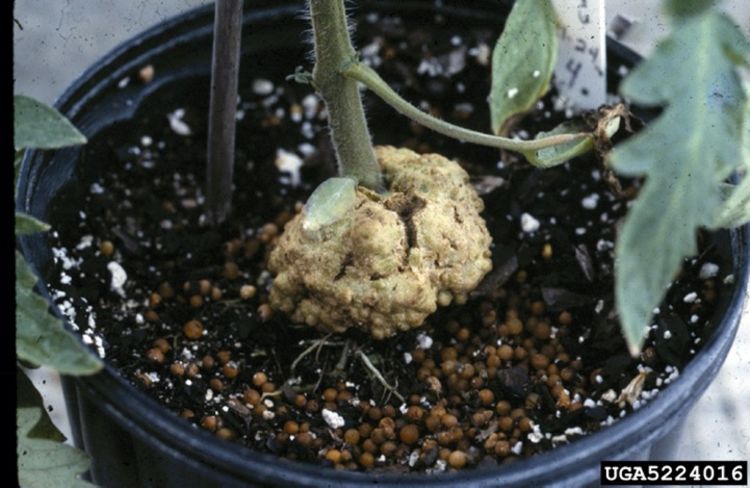
Photos and slides of plant diseases, such as this example of Crown Gall on a tomato plant, helped plant pathology students visualize plant diseases.
Photos and slides of plant diseases, such as this example of Crown Gall on a tomato plant, helped plant pathology students visualize plant diseases.
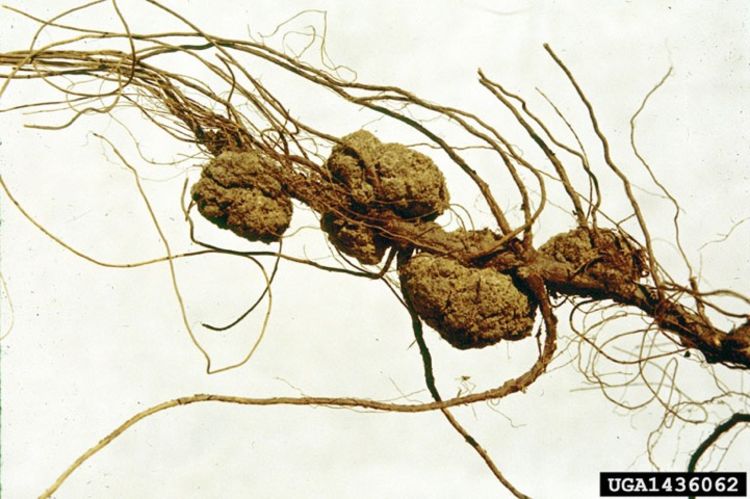
This slide shows crown gall on pecan roots.
This slide shows crown gall on pecan roots.
Associate Professor Jeff Mullen , Department of Agricultural and Applied Economics
"Energy Economics"
Teaching “Energy Economics” during the COVID-19 pandemic provided associate professor Jeff Mullen with a once-in-a-lifetime teaching opportunity — observing the impact of the crisis on the oil market in real time.
“I had students get articles from the newspaper that we would share and talk about. The Washington Post and the New York Times had some great write-ups on what was happening in the oil market,” Mullen said. “We started talking about the oil market back in January and after spring break, when the real collapse started to happen in March, it was a really unique opportunity to discuss futures. People trade in futures and the futures are currently trading at a negative price. People are paying other people to take the oil off their hands — that has never happened before.”
In addition to discussions about futures, Mullen gave his students a bit of an unusual research assignment: watching the 1983 comedy film “Trading Places” as a tutorial on futures markets and how they operate.
“It’s just one of the little tweaks I have done. Instead of giving lectures on futures markets, they got a Netflix night. A lot of them said their parents even watched it with them,” Mullen said, laughing. “I watched it again and, even after 40 years, it’s remarkable how contemporary it feels. Later, we had a half-hour discussion about the arbitrage they were able to execute against the Dukes and how that actually works.”
Mullen is pleased with how his students responded to the challenges of switching to an online format and with his own flexibility in dealing with the unexpected change, including swapping the traditional final for the class with a discussion-based participation final.
“We’ll use the three-hour block of time that is set aside for that final to do a live Zoom roundtable discussion on some of the material we’ve covered in class and as a time to introduce some new material I was not able to include during regular class time,” Mullen said. “That way they still get information they may have missed out on.”

This chart from the U.S. Department of Energy Energy Information Agency shows the sharp decline in oil futures experienced during the COVID-19 crisis.
This chart from the U.S. Department of Energy Energy Information Agency shows the sharp decline in oil futures experienced during the COVID-19 crisis.
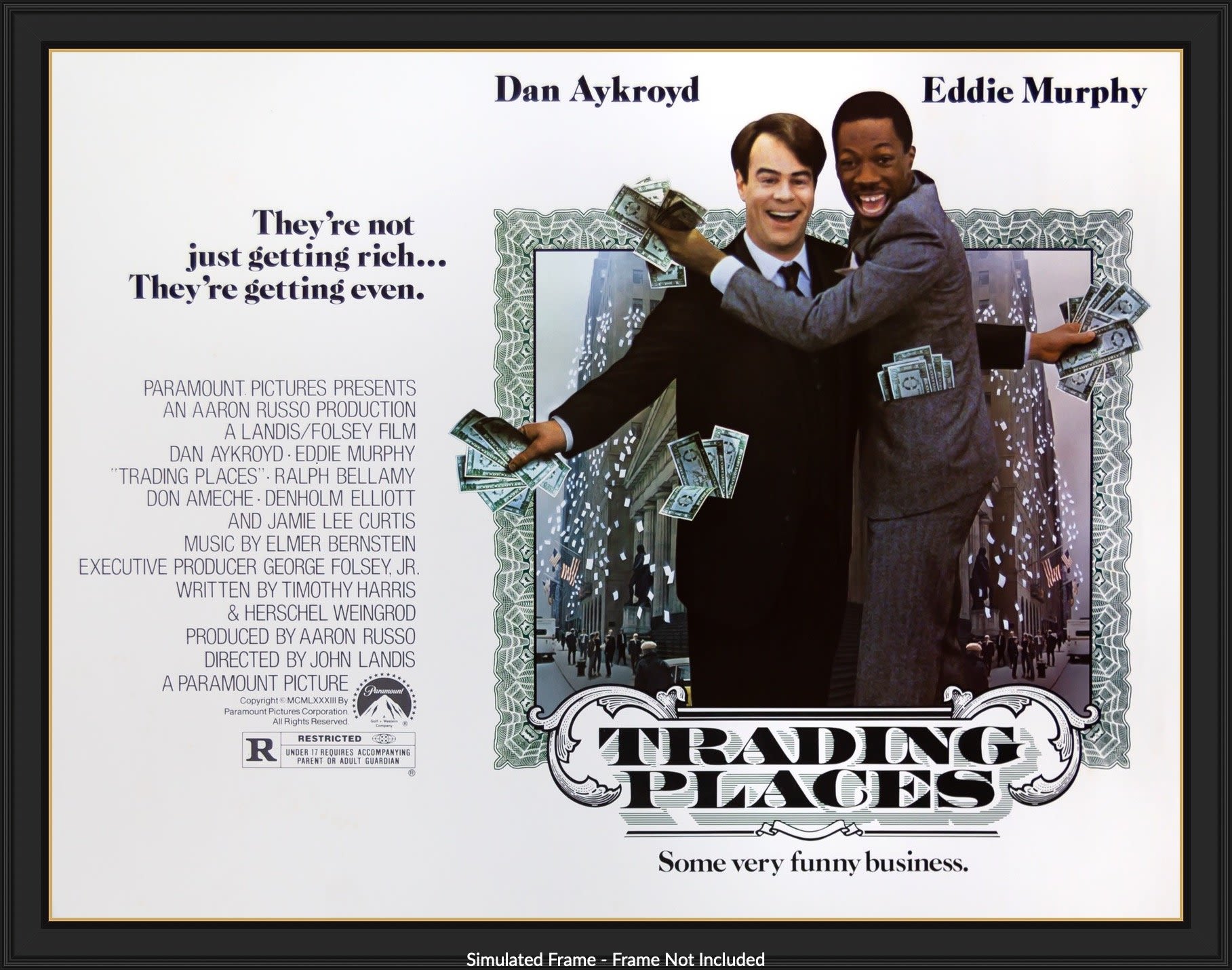
Mullen had students watch the 1983 comedy Trading Places, as an example of how futures trading works. The movie centers around a commodities brokerage firm's scheme to corner the market on frozen concentrated orange juice by obtaining a report on orange crop forecasts before it is made public.
Mullen had students watch the 1983 comedy Trading Places, as an example of how futures trading works. The movie centers around a commodities brokerage firm's scheme to corner the market on frozen concentrated orange juice by obtaining a report on orange crop forecasts before it is made public.
During a recent meeting of the University System of Georgia Board of Regents, Chancellor Steve Wrigley told board members that while the hope is for institutions to return to normal face-to-face instructional operations in the fall, it will depend on direction and guidance provided by public health officials and Georgia Governor Brian Kemp. In the meantime, Maymester and Summer 2020 courses will continue to be offered online. Information is available at www.uga.edu/coronavirus/info.php.
UGA Office of Instruction also has collected a number of distance learning resources for faculty at ovpi.uga.edu/teaching-and-learning-continuity/ and for students at ovpi.uga.edu/teaching-and-learning-continuity/student-resources-for-distance-learning/.
The College of Agricultural and Environmental Sciences Office of Information Technology also offers resources and Zoom guides at oit.caes.uga.edu/category/news-alerts/.
